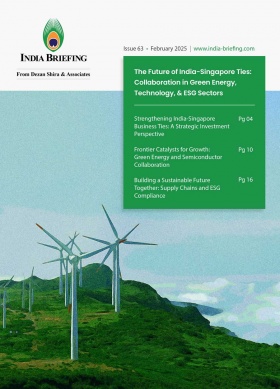India’s Competition Authority Rolls Out 2025 Cost Regulations Norms
India’s national competition authority has implemented new rules on cost regulations and services to address unfair practices carried out by e-commerce and quick-commerce players in the country.
The Competition Commission of India (CCI) has announced the implementation of new regulations to curb predatory pricing and deep discounting in the e-commerce and quick-commerce sectors. On May 6, 2025, the regulatory body issued a gazette notification to officially enact the Competition Commission of India (Determination of Cost of Production) Regulations, 2025, with immediate effect.
Earlier in 2025, the CCI had released a draft version of these regulations for public and industry feedback as part of its aim to modernize the framework for evaluating predatory pricing. The window for submitting feedback was open from February 17, 2025, to March 19, 2025.
Significance of the revised regulations
The CCI (Determination of Cost of Production) Regulations, 2025, introduced under the Competition Act, 2002, establishes a revised framework for evaluating potentially abusive pricing practices, particularly predatory pricing by an entity. One of the key changes in the new regulations is the shift from sector-specific benchmarks to a case-by-case assessment model. This flexible approach will enable the Competition Commission to consider evolving dynamics of different industries, especially those in the digital and quick-commerce sectors.
By moving away from fixed cost assessment standards and adopting a more flexible evaluation framework, the regulatory body is better equipped to address complaints of deep discounting and predatory pricing in rapidly changing market environments.
The release of the updated norms comes amid increasing central government oversight of online commerce platforms operating in India, particularly concerning claims of deep discounting and anti-competitive practices. In March, the All-India Consumer Products Distributors Federation filed a formal complaint urging the CCI to examine pricing models used by major e-commerce and fast-commerce entities. This move adds to the scrutiny facing food delivery platforms, which are under investigation for similar allegations in their operations.
Industry feedback and regulatory flexibility
Media reports state that during the public consultation process, several stakeholders raised concerns over the lack of clarity in the draft regulations, particularly on how costs would be assessed in varied sectors like digital markets. The Commission has emphasized that the new norms will be sector-neutral and grounded in a cost-based methodology adaptable to diverse industry models, including the digital economy.
Companies under investigation will be permitted to challenge cost assessments by requesting the appointment of independent experts, though they will bear the associated costs for doing so.
Understanding predatory pricing and its legal context
Predatory pricing refers to a strategy where a dominant company deliberately lowers its prices below the cost of production to drive competitors out of the market. Once rival firms are weakened or eliminated, the company typically raises prices to recoup its losses and consolidate market control. This practice is specifically prohibited under Section 4(2)(a)(ii) of the Competition Act, 2002, when used to unfairly gain or maintain dominance.
To strengthen oversight of such behavior, the 2025 regulation of the Determination of Cost of Production Regulations implements updated cost assessment standards. These revised benchmarks are designed to reflect modern economic thinking, judicial rulings, and international best practices in competition law.
About Us
India Briefing is one of five regional publications under the Asia Briefing brand. It is supported by Dezan Shira & Associates, a pan-Asia, multi-disciplinary professional services firm that assists foreign investors throughout Asia, including through offices in Delhi, Mumbai, and Bengaluru in India. Dezan Shira & Associates also maintains offices or has alliance partners assisting foreign investors in China, Hong Kong SAR, Vietnam, Indonesia, Singapore, Malaysia, Mongolia, Dubai (UAE), Japan, South Korea, Nepal, The Philippines, Sri Lanka, Thailand, Italy, Germany, Bangladesh, Australia, United States, and United Kingdom and Ireland.
For a complimentary subscription to India Briefing’s content products, please click here. For support with establishing a business in India or for assistance in analyzing and entering markets, please contact the firm at india@dezshira.com or visit our website at www.dezshira.com.
- Previous Article 100 Days of Trump 2.0: India’s Tariff and Trade Navigations So Far
- Next Article India’s M&A Outlook 2025: Domestic Strength and Sectoral Drivers












